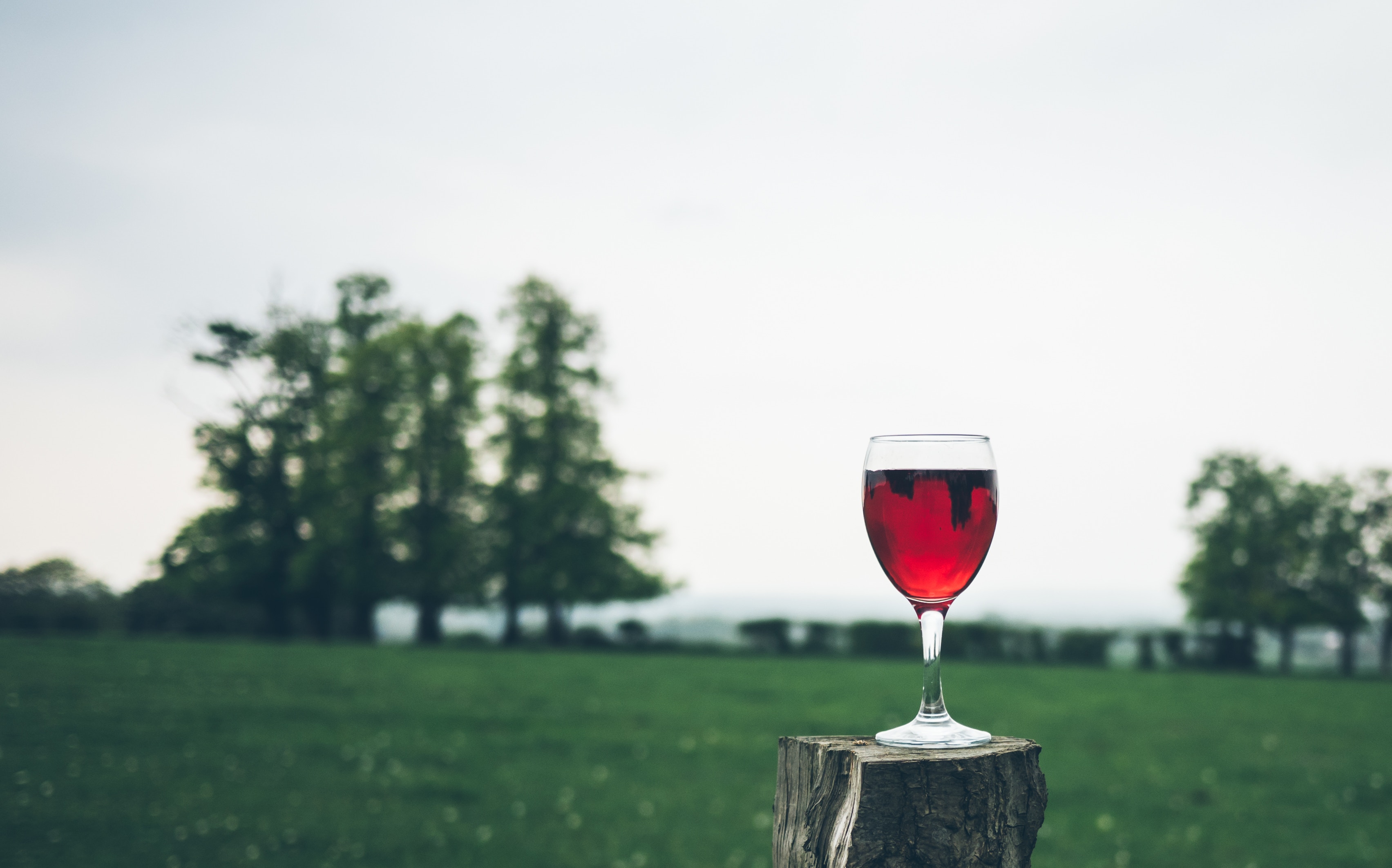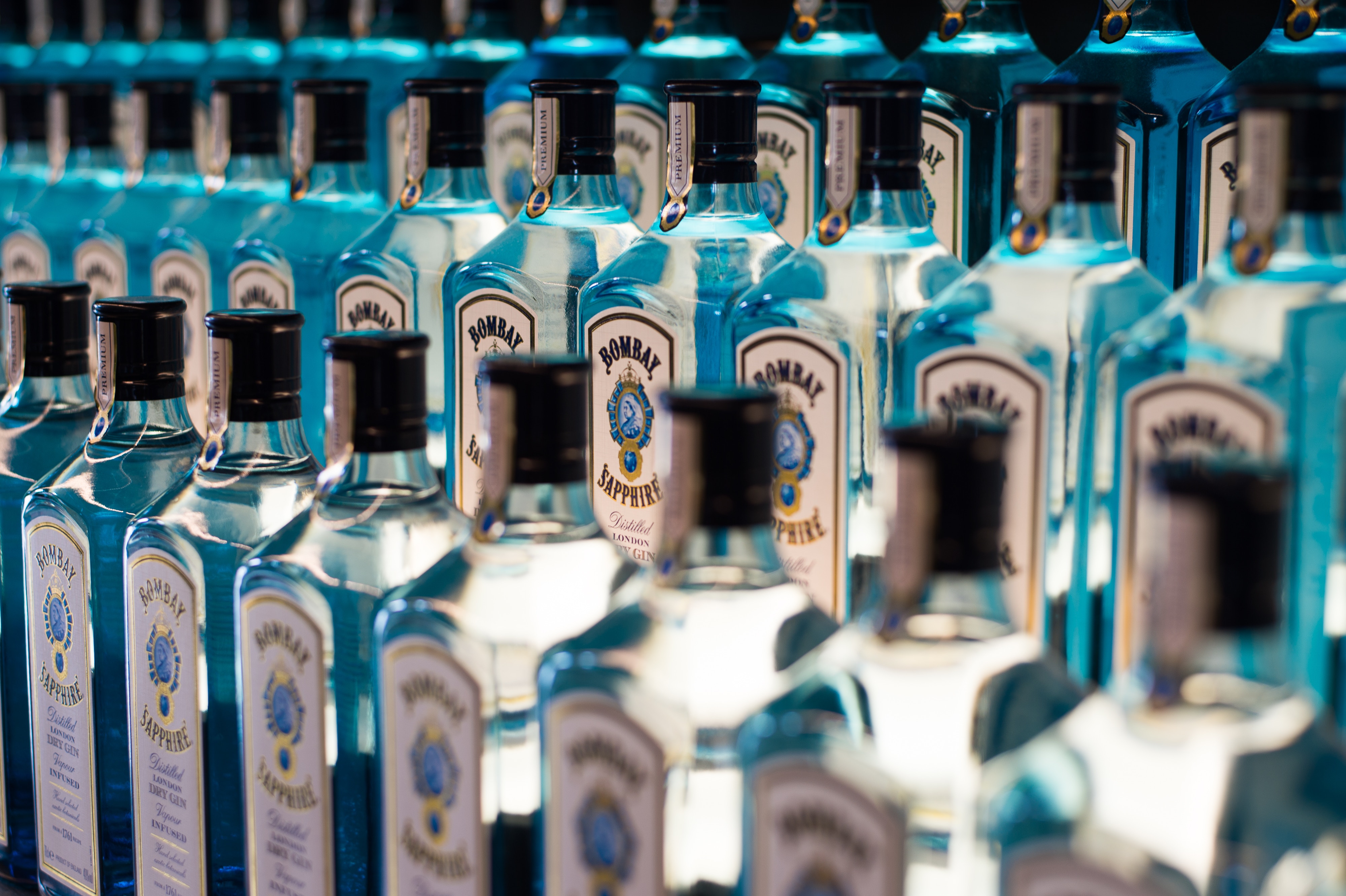Food Fact ALCOHOL
The risk of developing a range of illnesses, including certain cancers, increases with any amount of alcohol you drink on a regular basis. However if people keep within the recommended limits, you can reduce this risk.

The Department for Health (DOH) recommends that you should not regularly drink more than 14 units per week. However it is best to spread this evenly over three days or more. If you have one or two heavy drinking sessions, there are increased health risks.
One unit of pure alcohol is 10ml (1cl) or 8g.
For example, one unit of alcohol is about equal to:
half a pint of ordinary strength beer, lager or cider (3-4% abv - alcohol by volume).
a small pub measure (25ml) of spirits (40% abv).
a standard pub measure (50ml) of fortified wine such as sherry or port (20% abv).
There are one and a half units of alcohol in:
a small glass (125ml) of ordinary strength wine (12% abv).
a standard pub meaure (35ml) of spirits (40% abv).
Remember, many wines and beers are stronger than the more traditional ‘ordinary’ strengths and many measures, particularly home measures, are larger than standard sizes.

A more accurate way of calculating units is as follows. The percentage abv of a drink equals the number of units in one litre of that drink.
For example:
strong beer at 6% abv has six units in one litre – if you drink half a litre (500ml), which is just under a pint, then you have had three units.
wine at 14% abv has 14 units in one litre – if you drink a quarter of a litre (250ml), two small glasses, then you have had three and a half units.
There has been recent concern that people who see themselves as ‘social drinkers’, or who drink at home, are actually drinking too much and are at risk of developing long-term health conditions. Most of these people are unaware that regularly drinking more than is recommended can increase the risk of serious health problems, for example, they:
are greater than three times more likely to have mouth cancer.
could be three times more likely to have a stroke.
Women who regularly drink two large glasses of 13% wine (6.5 units) or more a day:
are twice as likely to have high blood pressure.
are 50% more likely to have breast cancer.
Binge drinking (more than four units at any one time) and drinking to get drunk, common among young adults, is bad for your health and should always be avoided.
In other words you should not save up all your units for the week and drink them all in one go. Studies show that young female British women have amongst the highest intakes of alcohol in the world.
Binge drinking can cause a range of social and health issues for example violent and unsafe behaviour. Heavy and prolonged drinking can lead to a wide range of health problems, including certain cancers, liver disease, stroke, high blood pressure and can affect mental health. Binge drinking can often result in vomiting, collapse and seizures which can be potentially life threatening.
Alcohol tolerance is different in everyone, however those who feel they can drink large amounts without feeling unwell are still causing the same damage to their bodies and put themselves at the same risk of social and health problems.
The NHS states that ‘Most people who have alcohol related health problems aren’t alcoholics. They’re simply people who have regularly drunk more than the recommended levels for some years.’ If you have drunk too much, you should avoid alcohol for at least 48 hours to give your body a chance to recover.
Alcohol and calories
Be aware that alcohol is high in calories and so can contribute to weight gain. One gram provides seven calories (7kcal), compared with 9kcal per gram for fat, and 4kcal per gram for carbohydrate and protein. One unit contains eight grams or 10ml of alcohol which provides 56kcal. However other ingredients in alcoholic drinks, such as sugar, cream and fruit juice, can add more calories.
Many people forget to include drinks including alcohol when they are watching or recalling what they eat. It’s easy for these calories to add up quickly and unnoticed as they are being consumed as a liquid. It is also an appetite stimulant and can lead to overeating at mealtimes, late at night and even the next day.
To provide all the nutrients needed to maintain health and reduce risk of disease, a healthy balanced diet containing a variety of foods is needed. Alcoholic drinks lack most essential nutrients and vitamins so if it is providing most of the calories in the diet then there is a risk of nutritional deficiencies. Therefore, the practice of ‘saving’ calories from food for alcohol i.e. drinking rather than eating to prevent putting on weight, should be discouraged.

Alcohol is also a diuretic, which means it makes the body lose more water than usual. When you drink, it’s a good idea to drink water or other diet soft drinks in between and afterwards to avoid dehydration.
Cutting down alcohol consumption
If you want to try to cut down on the amount you are drinking, here are some practical tips:
Set yourself a limit on how much you are going to drink on a night out or set yourself a budget of how much money you will spend.
Let your friends and family know you are trying to cut down so they can support you.
Always try to eat before you start drinking – eat before you go out for the evening or have a meal while you are out. Even a snack at work will help, for example vegetable and bean soup, oat cakes or a smoothie.
Don’t drink alcohol if you are thirsty.
Avoid salty snacks such as crisps and salted nuts because these make you thirstier (as well as being high in fat and salt).
Have some non or low alcoholic drinks through the evening instead.
Always have a glass or bottle of water with you or a jug of water on the table as well as your alcoholic drink.
Think about the strength of your drink – choose beers or lagers that contain less alcohol (they will have a lower ‘abv’).
Sip a drink slowly so it lasts longer.
Don’t top up the glass before it’s finished so the volume consumed can be monitored more accurately.
Replace high calorie mixer for a lower calorie one e.g, low calorie tonic or diet cola and alternate drinks with water/diet/low calorie drinks.
Try white wine as a spritzer mixed with sparkling water.
Choose half pint, small can, small glass, single measure.
Use a smaller wine glass.
If you’re pregnant, or are planning a pregnancy, you are advised to stop drinking alcohol altogether. It can reduce the ability to conceive, damage the unborn baby and may even lead to early miscarriage.
If you are breastfeeding, occasional drinking, such as one or two units once or twice a week, is not harmful to your baby but drinking any more than this can cause problems. It’s best to avoid drinking alcohol just before a feed. This is because the alcohol can pass to the baby in small amounts through breast milk.
You should also take care or seek medical advice if you are ill or suffer from conditions such as diabetes, gastric ulcers, high blood pressure or depression or taking certain medication. If you are unsure, then check with your GP or pharmacist.
NHS information source.
Congratulations @ely.foody! You have completed some achievement on Steemit and have been rewarded with new badge(s) :
Click on any badge to view your own Board of Honor on SteemitBoard.
For more information about SteemitBoard, click here
If you no longer want to receive notifications, reply to this comment with the word
STOP